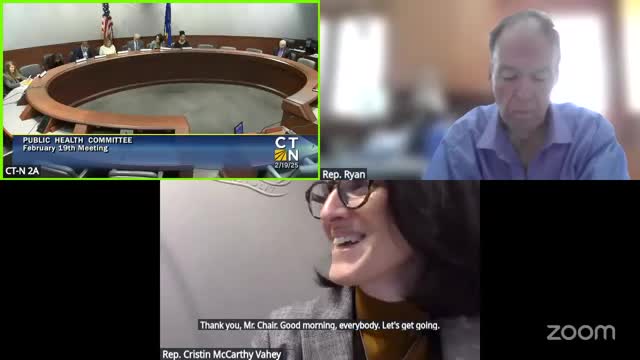Committee raises concept to study nitrogen runoff rules for residential development

Summary
The Public Health Committee voted to raise a concept to study possible requirements to reduce nitrogen runoff tied to residential developments; members said the idea is a work in progress and recommended further interagency review with public health and environment officials.
The Public Health Committee raised a concept to consider requirements aimed at reducing nitrogen runoff from residential developments during its Feb. 19 meeting.
Committee co-chair Senator Amar said the move is intended to allow a hearing and further study: “So it's worthy to look at, how, what is the right amount and is there opportunity to address this and fix this from a public health perspective?”
The concept would examine links between human activity, nitrogen in water systems and public-health and environmental impacts. Committee members said the proposal is preliminary and likely to evolve as staff and agencies provide technical information.
Representative Kristen McCarthy (Representative) said the proposal remains a draft concept and recommended a working group: “I think there is some conversation about creating a working group to look at this. We, I think, actually, were hoping to have a meeting with DPH and deep to talk about this issue with, the public health leadership and the environment leadership…”
Several members asked about the scope. Representative Myra (Representative) asked whether the concept is aimed at multifamily housing or broader residential areas. Senator Amar answered the concept would focus on residential environments and on reviewing existing regulations and authorities.
Representative Zuppes (Representative) asked for a plain-language description of nitrogen runoff and where it comes from; Senator Amar replied it can be related to sewage systems and other sources and emphasized the overlapping public-health and environmental concerns the concept is intended to clarify.
Members noted uncertainty about which agency or regulatory framework would ultimately lead any new rulemaking; the co-chairs said the committee expects to invite the Department of Public Health and environmental regulators to brief members and to refine the scope. The committee advanced the concept by voice vote so the subject can receive a public hearing and further agency input.
The committee announced that votes on concepts and bills will remain open until 2 p.m. to accommodate members attending multiple concurrent meetings.

